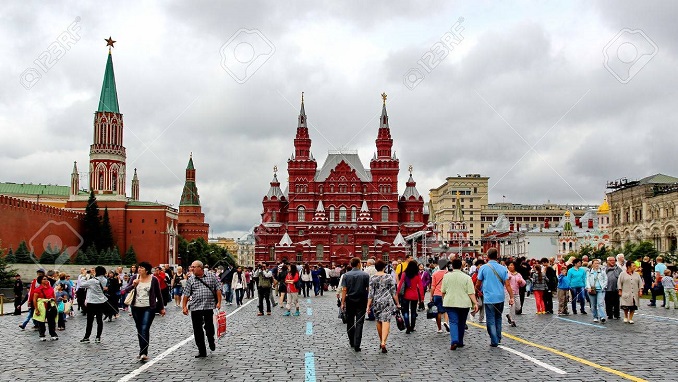Moscow has been so warm this December that the government has resorted to sending trucks filled with artificial snow to decorate a New Year’s display in the city center, the Moscow Times writes.
City authorities delivered the snow for a snowboarding hill, with observers noting the irony of bringing snow to a city that spends millions each year on its removal.
“This is all the snow there is in Moscow. It’s being guarded in Red Square,” one Instagram user wrote, accompanied with a photograph from near the Kremlin.
The Moscow region is in the throes of one of its warmest winters since temperatures began to be systematically recorded 140 years ago. The temperature in the Russian capital rose to 5.4C on 18 December, topping the previous record for the month set in 1886.
“It’s not normal at all,” said Alexander Stanko, 62, a former foreman who was admiring the holiday decorations near the Kremlin on Sunday afternoon. As he spoke with a reporter, his granddaughter waved from a carousel set up near Red Square.
“Winters used to be a lot harder here,” he said. “You’d expect a few days with really strong frost and there would almost always be snow by the new year. It has been getting warmer, definitely. That’s why, as you can see, we have this funny snow over here this year.”
Concerns are growing about the effects of global heating on Russia. Permafrost under the country’s northern towns is slowly melting, and receding Arctic ice is driving hungry polar bears to forage in urban areas. The thaw in the northern permafrost has even set off a “gold rush” for mammoth ivory by making the tusks previously buried in ice more accessible to prospectors.
The balmy December weather has interrupted hibernation at Moscow zoo and caused crocuses, lilacs and magnolias at Moscow State University’s apothecary garden to flower early. Zoo officials said they had put five jerboas – a type of hopping rodent with long hind legs – into specially refrigerated enclosures to encourage them to hibernate.
The most visible impact, however, has been the lack of snow, which usually begins blanketing Russia in October or November. Light flurries have fallen in Moscow and its parks are dusted white, but most of the snow in the city center has melted.
The country virtually shuts down for more than a week after the new year, as Russians eat and drink their way through early January with ample time to recover before returning to work. This year, Moscow has closed down central avenues near the Kremlin and is erecting large soundstages for concerts during the holiday.












